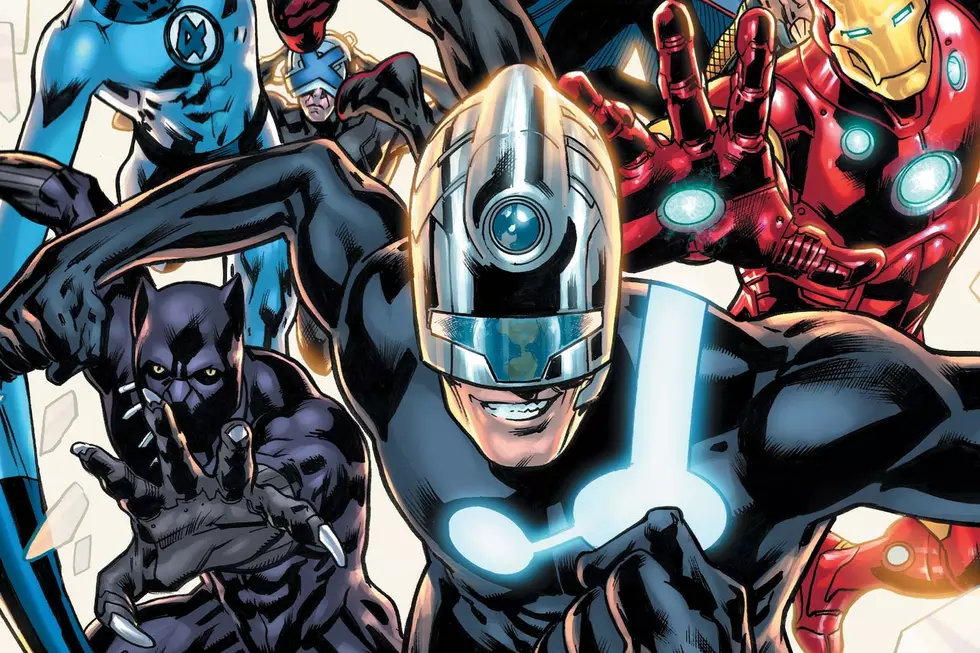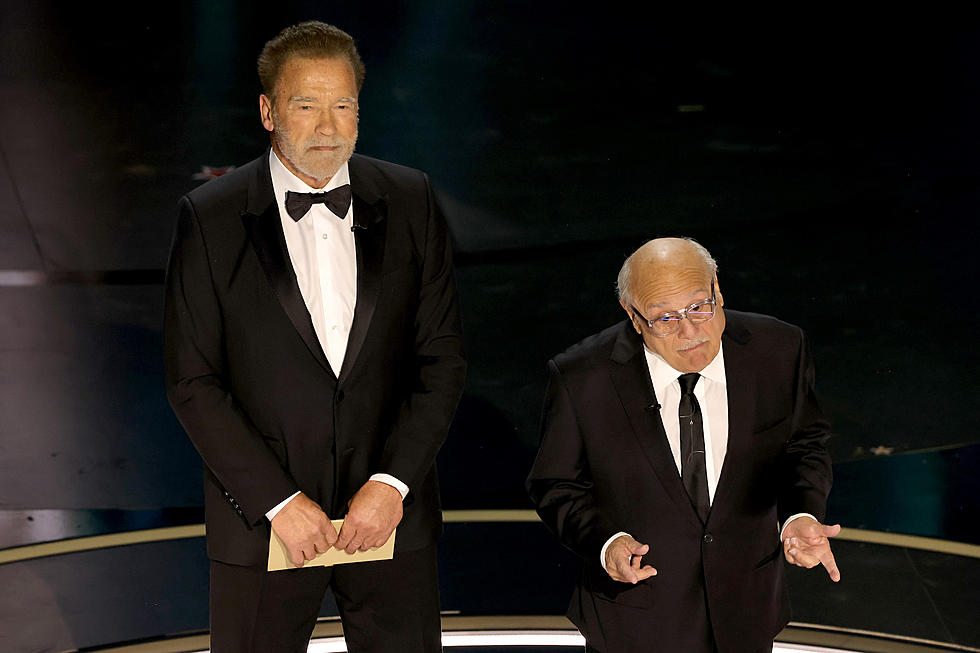
The Actors Who Won’t Be Honored This Oscar Season (But Should Be)
Year-end awards are supposed to honor the best in cinema. But it might be more accurate to say they honor a narrow sliver of the best in cinema; only films released from October thru December; only the stuff promoted by the big studios; only movies deemed “important” or “serious” or “biopics about dead famous people.” The impulse to make lists and give out prizes is a good one, but more often than not that impulse results in one big echo chamber, with pundits predicting — and critics and guilds rewarding — the same half-dozen contenders.
In the interests of mixing things up, and shining a spotlight on some of the movies that are stuck in the shadows (unlike Spotlight), the staff of ScreenCrush convened to highlight some of our favorite performances that aren’t in the Oscar conversation this fall. Each of our editors picked an actress, actor, supporting actress, and supporting actor they feel have been underserved by all the awards talk thus far, and are long shots (at best) for any kind of recognition from the actual Academy Awards.
Will this piece change the conversation? Definitely not. But it might convince some people to watch these movies, which is the point of the awards in the first place. Just because something is less prominent doesn’t mean it’s less deserving of your attention. You can’t go wrong seeking out any of these 12 great performances.
Best Actress
Laia Costa
From Victoria
Most award-winning performances are built in the editing room; a Frankenstein’s monster-style composite of dozens, if not hundreds, of different shots. Laia Costa, the star of the single-take thriller Victoria, didn’t have that luxury. Every glance, every expression, every tear, every scream had to come in one consecutive 140-minute stretch on and around the streets of Berlin. Costa’s in every scene of the film, and practically every single frame, imbuing her character’s improbable journey from lonely innocent to fugitive bank robber with haunting pathos. And after all that running and screaming and driving, Costa summons the strength to deliver one of the most devastating scenes of the year, when she completely breaks down after a heartbreaking loss. And then she composes herself again and keeps going without a single cut. — Matt Singer
Shu Qi
From The Assassin
There’s no mistaking it: The Assassin is a beautiful film. While it’s easy to say the mise en scène is the real star, that would be doing a disservice to Taiwainese actress Shu Qi. It’s not easy to take your eyes off Hou Hsiao-Hsien’s gorgeous visuals, but Qi, playing the title character, has such a magnetic presence she forcefully grabs your attention. Qi may not be as well known stateside as Charlize Theron (who plays a similar role in Mad Max: Fury Road), but her performance is every bit as captivating. — Mike Sampson
Kitana Kiki Rodriguez
From Tangerine
There’s a palpable force that comes from a performance that echoes real life. In Tangerine, Kitana Kiki Rodriguez is a transgender woman of color who plays a transgender woman of color, something that’s rarely seen in mainstream film, where depictions of trans women are still predominantly played by cisgender white men. There’s a constant radiance to Rodriguez’s screen presence in Sean Baker’s film that feels on the brink of explosion. Rodriguez’s Sin-Dee Rella, a Los Angeles sex worker fresh out of jail and on the hunt for her cheating boyfriend/pimp, never stops moving or talking or shouting. She’s a firecracker that, once lit, is an unstoppable spark you can’t look away from. — Erin Whitney
Best Actor
Abraham Attah
From Beasts of No Nation
Let’s take a break from the Leo-Slept-in-A-Horse-Carcass Oscar narrative to give credit to a 14-year-old nonprofessional actor. In Cary Fukunaga’s Beasts of No Nation, Abraham Attah gives one of the most harrowing and versatile performances of 2015 as Agu, a West African boy who loses his family to war and falls in with an army of child soldiers. What’s most arresting about Attah is how he depicts three versions of a young boy. At first we meet the buoyant, imaginative Agu untouched by war, followed by his transformation into a remorseless killing machine, and then into a young man who must reckon with the horror he’s seen and committed. It’s one of the most complex and upsetting onscreen portraits of a child in years. While Idris Elba’s performance will likely get him a Supporting Actor nomination, this is entirely Attah’s film. — EW
Paul Dano
From Love & Mercy
Paul Dano may be fresh off a Gotham Award win for Best Actor, but none of Gold Derby’s 20 experts think Dano has a shot at an Oscar nomination, which is a damn shame. It’s not much of a shock, though; Love & Mercy came out at the wrong time of the year for awards buzz, and doesn’t have a major studio backing a big publicity campaign. There was also a little confusion about who, exactly, was the lead of this film. Dano shares the main role of Beach Boys architect Brian Wilson with John Cusack; the former plays Wilson during the Beach Boys’ creative heyday, the latter after he’s succumbed to mental illness. Though most of the “story” happens in Cusack’s scenes (where Wilson falls in love and struggles to break free of his controlling and deceitful doctor), that story only has weight and meaning because of the collapse that takes place in Dano’s portion, and because of Dano’s rich and soulful performance as a genius who reaches his creative peak and his emotional nadir at precisely the same moment. — MaS
Samuel L. Jackson
From The Hateful Eight
I’m not really at liberty to fully discuss the intricacies of The Hateful Eight as we’re still under embargo after an early screening. But in a crowded lineup of stars, Jackson separates himself from the pack and delivers his best work in years. Jackson can be a frustrating actor; one who has a difficult time saying no and, as a result, winds up in movies like Meeting Evil or Barely Lethal. Every once in a while, though, he’ll come along and remind you why he’s one of the best actors of his (or any) generation. He can do more with just his eyes than most actors can do with their whole arsenal of acting tricks. And wait until you see those eyes in 70mm. — MiS
Best Supporting Actress
Rebecca Ferguson
From Mission: Impossible - Rogue Nation
2015 has been a banner year for strong, independent women in action movies. (*psst* What about Jurassic World?) Okay, so maybe it hasn’t been a great year, but it has given us Charlize Theron in Mad Max: Fury Road, the aforementioned Shu Qi in The Assassin and Rebecca Ferguson in Mission: Impossible - Rogue Nation. How good was Rebecca Ferguson in M:I-RN? So good they’re actually bringing her back for the next film, a first for any female M:I co-star. (Please don’t ask what happened to Thandie Newton, Michelle Monaghan or Paula Patton.) Ferguson’s Ilsa Faust isn’t just Ethan Hunt’s eye candy, she’s his equal; just as cunning and capable as her IMF counterpart. — MiS
Rachel Weisz
From Youth
A lot of awards season prognosticators have been touting Jane Fonda’s performance in Paolo Sorrentino’s Youth. As compelling as Fonda’s brief stint in the film is (roughly three scenes), it’s not nearly as fulfilling as Rachel Weisz’s. She pours so much restraint into Lena Ballinger, the daughter and assistant of Michael Caine’s famed retired composer Fred Ballinger, that her eventual eruption in a fantastic monologue is one of the film’s most rewarding moments. A quiet and dutiful woman, Weisz’s Lena remains in the background for much of the film, just as her character stays in the background of the men in her life. In one scene she does little but cry silently behind an enraged Caine. Weisz’s hushed moments might not stand out as much as Fonda’s gaudy presence, but that’s what makes her so remarkable. — EW
Cate Blanchett
From Cinderella
Cate Blanchett is a frontrunner for an Oscar nomination for her work in Todd Haynes’ Carol. But she’s guaranteed to be overlooked for her equally lovely work in Kenneth Branagh’s Cinderella, in which she brought rare sensitivity and complexity to the role of the wicked stepmother. Her Lady Tremaine is no cardboard villain; she’s a woman whose life has been even harder than Ella’s. Twice a widow, she’s done what she had to do to sustain herself and her two spoiled daughters. That doesn’t excuse her mistreatment of her stepdaughter, but it does illustrate how people faced with hardships have a choice: Succumbing to despair or soldiering on with courage. Lady Tremaine makes one choice, and Ella makes another. Blanchett turned a simplistic baddie into a fully realized and multidimensional character, and gave a live-action cartoon the weight of a Shakespearean tragedy. — MaS
Best Supporting Actor
Oscar Isaac
From Ex Machina
We have lots of preconceived notions about brilliant computer programmers. Oscar Isaac’s Nathan Bateman from Ex Machina defies all of them. When he’s not building the most advanced robots in history, Nathan’s more likely to be pumping iron or getting drunk than writing code. But in keeping with Ex Machina’s theme of deceptive surfaces, the Nathan we see is not necessarily the real guy; Isaac layers his performance with enough ambiguity to suggest all of that is an act to mask the man’s darker, twisted impulses. While Caleb (Domhnall Gleeson) performs a Turing test on Nathan’s latest robot Ava (Alicia Vikander) to determine whether she has true human consciousness, Isaac invites viewers to perform their own Turing test on Nathan; to decide whether he’s a humane but eccentric techie or a misogynistic brogrammer. Director Alex Garland’s script and Isaac’s nuanced work keep us guessing, and changing our allegiances, right up until the last scene. Also, this dance scene on repeat forever. — MaS
Tom Noonan
From Anomalisa
In Charlie Kaufman’s world, Tom Noonan is like the shadow of our deepest anxieties, a presence that’s both everyone and no one. In Kaufman’s Anomalisa, Noonan plays (SPOILER ALERT) literally all but two characters — he’s actually credited onscreen as “Everyone Else.” Noonan voices all of the stop-motion puppet characters, both male and female, a brilliant stroke of casting — especially following Kaufman’s last film, Synecdoche, New York, where Noonan’s Sammy was a sort of physical embodiment of the subconscious. Sometimes his high-pitched affability is hilarious; at others, his monotony is haunting and uncomfortable. But it’s not just how many characters Noonan voices in Anomalisa that makes his vocal work so commendable. It’s how he brings an eeriness to all of them. — EW
Albert Brooks
From Concussion
Concussion is a solid, entertaining movie, but it is also a movie that is trying very hard to be important. Will Smith’s character, Dr. Bennett Omalu, is mostly a humorless stiff, and the subject matter is grim and unsettling. That’s why having Albert Brooks around is so important. As Dr. Cyril Wecht, Omalu’s supervisor in Pittsburgh, Brooks is convincing as a well-respected forensic pathologist who happens to not give very many f---s, and also a welcome breath of fresh air in an otherwise austere film. Much of the dialogue in Concussion feels heavily written, but every word from Brooks sounds completely natural. — MiS
More From ScreenCrush









